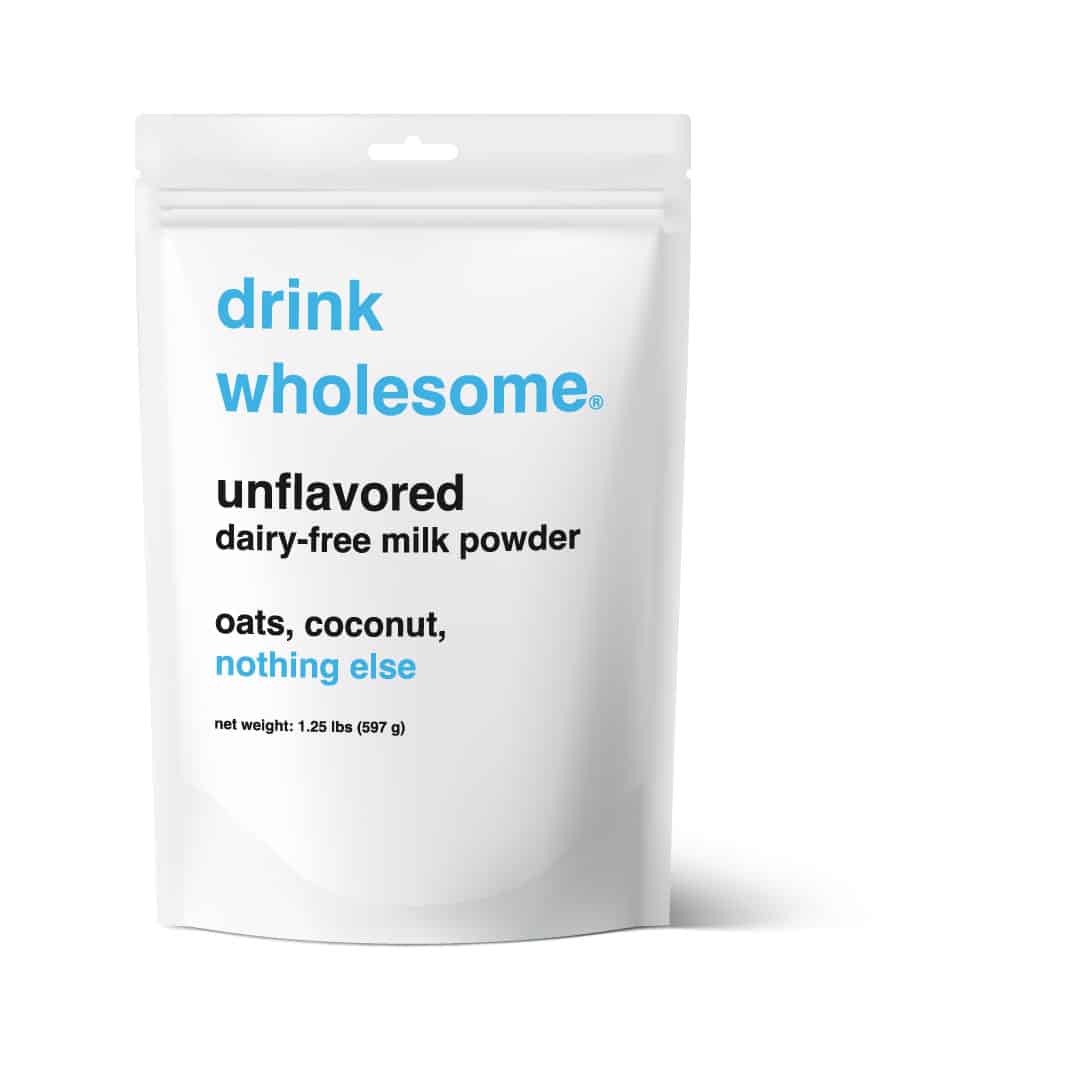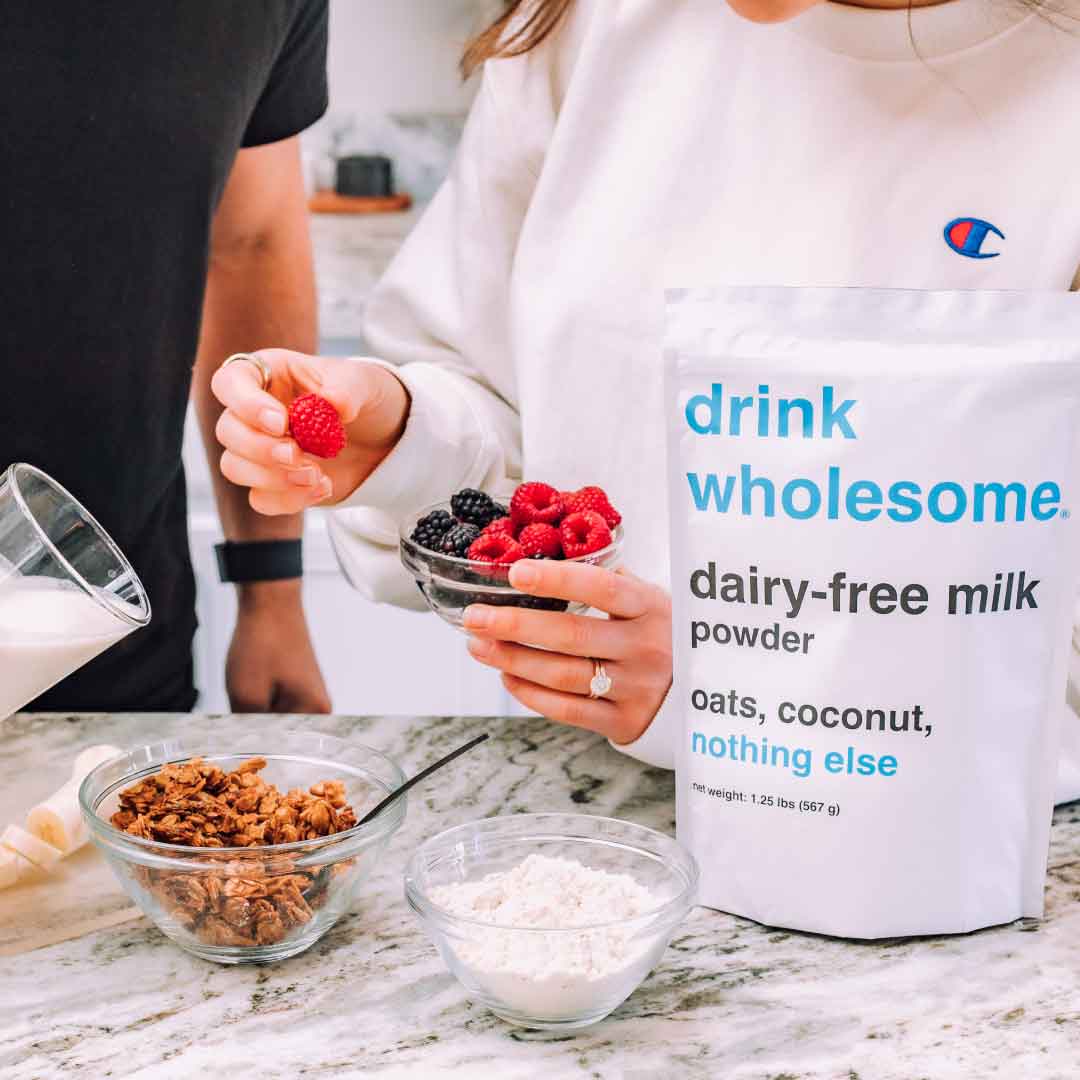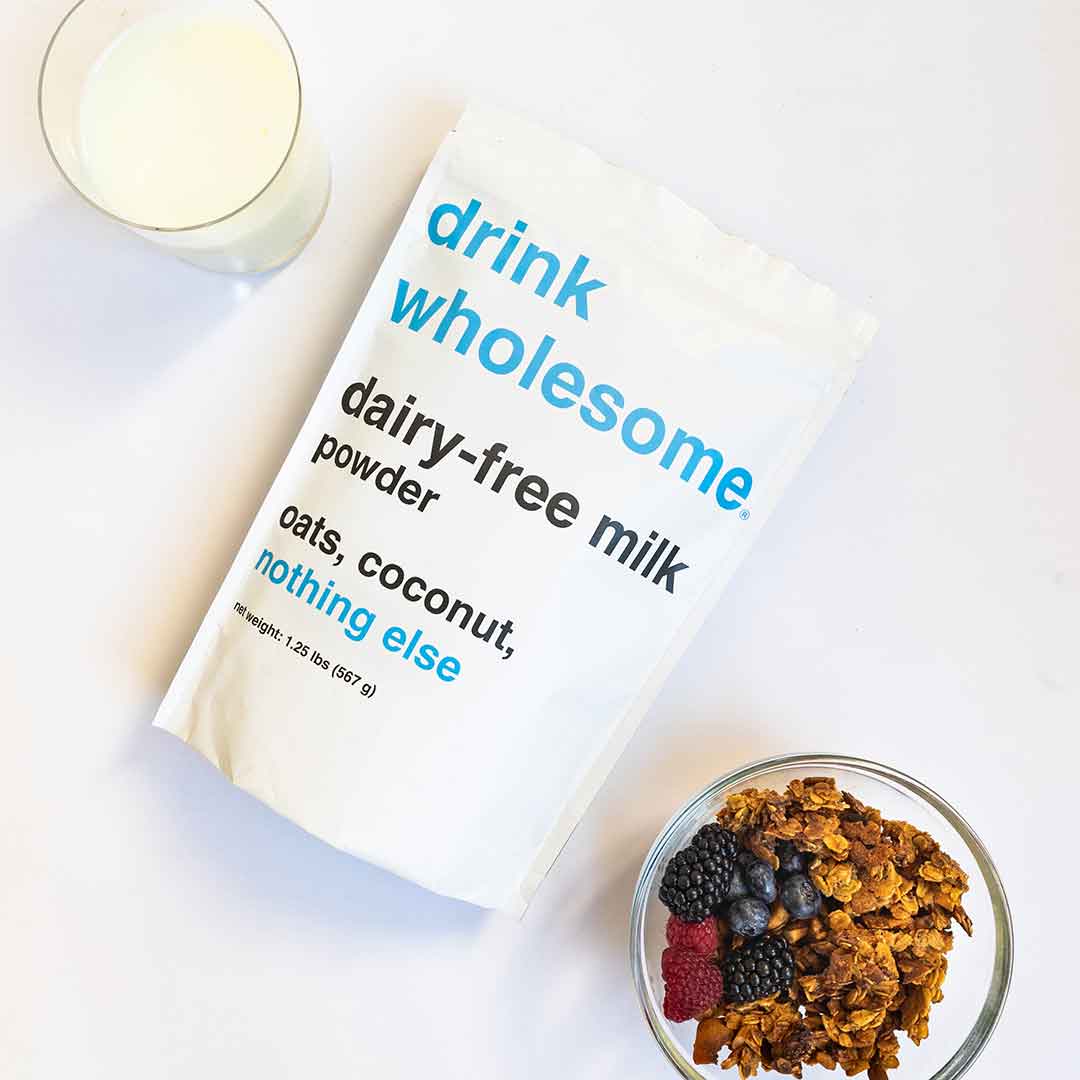Again, most plant milks contain food additives. Simply put, these added ingredients help to make plants taste, feel, and look like cow’s milk.
Here are the ingredients in two of the top brands of plant-based milk in the United States.
Almond Breeze Almond Milk ingredients
Almondmilk (Filtered Water, Almonds), Calcium Carbonate, Sea Salt, Potassium Citrate, Sunflower Lecithin*, Gellan Gum*, Natural Flavors*, Vitamin A Palmitate, Vitamin D2, D-Alpha-Tocopherol (Natural Vitamin E).
*Sunflower lecithin is a group of fatty substances derived from sunflower seeds. It is added to plant milk to improve texture and prevent separation.
*Gellan gum is a thickener used to give plant-based milk a creamy texture.
*Did you know that while food manufacturers are required to disclose their ingredients, natural flavor manufacturers are not. They can add solvents, preservatives, emulsifiers, carriers and other additives to a flavor that qualifies as “natural” under current regulations.
Chobani Oat Milk ingredients
Organic Oat Blend (Water, Organic Whole Grain Oats), Contains 2% or Less of: Organic Rapeseed Oil* (Low Erucic Acid), Sea Salt, Nutrient Extract Blend (Fruit and Vegetable Sources), Calcium Carbonate, Gellan Gum, Tricalcium Phosphate*, Dipotassium Phosphate*.
*Rapeseed oil is another name for canola (cooking) oil, and is used to replicate the creamy mouth-feel of dairy.
*Because it is cloudy and white when added to a liquid, tricalcium phosphate gives plant milk the opacity of cows’ milk.
*Dipotassium phosphate is a stabilizer that helps prevent separation on the shelf.
As you can clearly see, each of these plant milks contains several food additives. Now I know what you are thinking, sure there are food additives, but they only make up a small percentage of the formulation (ingredients are listed in descending order by weight). But let me remind you that milk is something that many people drink every day, and that over time (months, years), small amounts add up. This is a problem for several reasons.
First of all, food additives, even in small quantities, can cause gastrointestinal (GI) side effects like bloating, constipation, diarrhea, gas, and stomach pain. This is especially the case for people with sensitive stomachs and gut issues, and occurs because additives look nothing like real food. They sit in your gut for longer than food should, which gives your gut bacteria more time to eat. As they eat, gut bacteria produce gas, causing bloating and stomach pain. Gas also slows colonic transit (the amount of time it takes food to travel through the colon), which can lead to constipation.
In the long term, food additives can cause permanent gut damage. For starters, they can disrupt regulatory pathways in the intestine, which can result in the development of inflammatory bowel disease (IBD) and systemic inflammatory disorders.
Moreover, more and more research is finding that food additives alter the composition of your gut microbiota, the collection of microorganisms living in your small intestines. These microorganisms play an important role in digestion and overall health, and an imbalance may lead to chronic diseases like obesity and diabetes. It is therefore very much in your best interest to avoid plant-based milks made with food additives.
Here is a list of the most common food additives in plant-based milk:
acacia gum, canola oil, carob bean gum, carrageenan, cellulose gum, dicalcium phosphate, dipotassium phosphate, disodium phosphate, gellan gum, guar gum, gum arabic, inulin, locust bean gum, monosodium phosphate, “natural” flavors, palm oil, phosphoric acid, rapeseed oil, soybean oil, soy lecithin, sunflower lecithin, sunflower oil, tricalcium phosphate, xanthan gum
Drink Wholesome Plant Milk Powder Ingredients
oats, coconut
Our plant-based milk powder, unlike the leading brands, is made with 2 simple ingredients: oats and coconut. We add coconut for two reasons: 1) it improves the texture 2) it improves the taste. We did not just want to make another watery powdered plant milk, we wanted to make something rich and creamy that people can add to coffee. Coconut allows us to do that, and we have no problem whatsoever adding it to the ingredient list. If you are sick of plant-based milks full of gums and oils, give our powdered plant milk a try.









